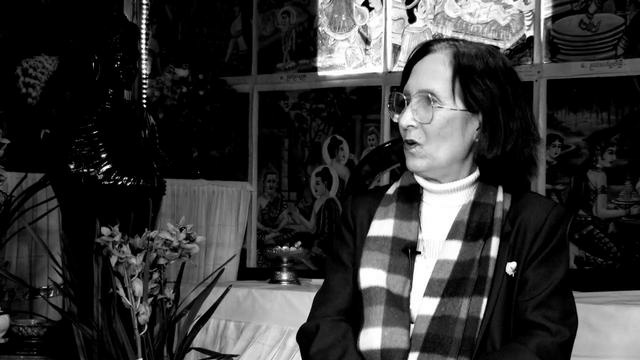
A California woman is the first Cambodian-American to testify in a trial of former Khmer Rouge leaders, traveling to the capital city of Phnom Penh to give her testimony before a United Nations-backed tribunal.
Sophany Bay, who lives in San Jose, was a teacher in Phnom Penh until
the Khmer Rouge invaded the city in 1975, forcing her to evacuate with
her three children. During the march out of the city, Bay's infant
daughter became ill and died after a person she believed was a health
worker — but who was actually a Khmer Rouge soldier — gave the child an
injection. Bay was eventually sent to a forced labor camp, where her
other children later died as well.
Bay has now traveled to Phnom Penh to tell her story before the U.N. tribunal, which has charged two accused former regime leaders with genocide and crimes against humanity.
Attorney Nushin Sarkarati of The Center for Justice and
Accountability, a San Francisco-based group, is representing Bay and
other Khmer Rouge survivors in court. Sarkarati says Bay is the only
survivor from the United States to testify at the trial.
"She was essentially chosen because her harms are directly related to the crimes that are being heard in this trial, which is the forced evacuation of Phnom Penh," Sarkarati said.
"She was essentially chosen because her harms are directly related to the crimes that are being heard in this trial, which is the forced evacuation of Phnom Penh," Sarkarati said.
The two men on trial are the Khmer Rouge's former deputy secretary, Nuon Chea, and former head of state Khieu Samphan. Last week, both expressed remorse for the atrocities that took place during the group's rule in the late 1970s, but they claimed to be unaware of the acts.
A Yale University study has estimated that nearly two million people lost their lives during the time that the Khmer Rouge was in power. People were forced from cities to rural areas and forced into agricultural work, and many were imprisoned and tortured.
One legacy that remains is a high incidence of post-traumatic stress
disorder and other mental health issues among survivors, including many
Cambodian immigrants in the United States. Bay, the U.S. witness,
herself counsels Cambodian-Americans on mental health matters.
In addition to seeking justice, Bay and other Khmer Rouge survivors
also want reparations. That could include a memorial to the victims.
Bay said in an interview with KPCC in 2011: "I want some place for the memory, to remember my children, like other people, like other victims."

No comments:
Post a Comment